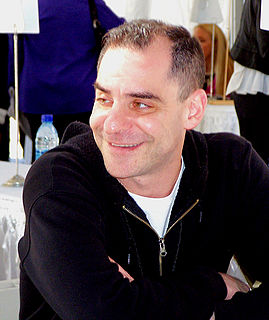A Quote by Andrei Tarkovsky
The meaning of religious truth is hope.
Quote Topics
Related Quotes
And a noble life is one ordered by, and oriented to, a transcendent moral code, not just one's own concept of existence and meaning and truth. ...if we want a society that reveres life, that defends the family, and that discourages delinquency and promotes decency, we cannot force a privatization of religion; we must allow the truth-claims of religious faith to be uttered aloud in the public square.
If psychoanalysis was late 19th century secular Judaism’s way of finding spiritual meaning in a post-religious world, and retail is the late 20th century’s way of finding spiritual meaning in a post-religious world, what does it mean that I’m impersonating the father of psychoanalysis in a store window to commemorate a religious holiday?
Only in truth does charity shine forth, only in truth can charity be authentically lived. Truth is the light that gives meaning and value to charity. That light is both the light of reason and the light of faith, through which the intellect attains to the natural and supernatural truth of charity: it grasps its meaning as gift, acceptance, and communion. Without truth, charity degenerates into sentimentality. Love becomes an empty shell, to be filled in an arbitrary way.
'Always speak the truth - think before you speak - and write it down afterwards.'
'I'm sure I didn't mean - ' Alice was beginning, but the Red Queen interrupted her impatiently.
'That's just what I complain of! You should have meant! What do you suppose is the use of child without any meaning? Even a joke should have some meaning - and a child's more important than a joke, I hope.
The usefulness of religion - the fact that it gives life meaning, that it makes people feel good - is not an argument for the truth of any religious doctrine. It's not an argument that it's reasonable to believe that Jesus really was born of a virgin or that the Bible is the perfect word of the creator of the universe.
As for the meaning of gardens, particular gardens may have, of course, all sorts of different meanings - emotive, historical, emblematic, religious, commemorative, and so on. But I think that good gardens all signify or exemplify an important truth about the relationship of culture and nature - their inseparability.






































